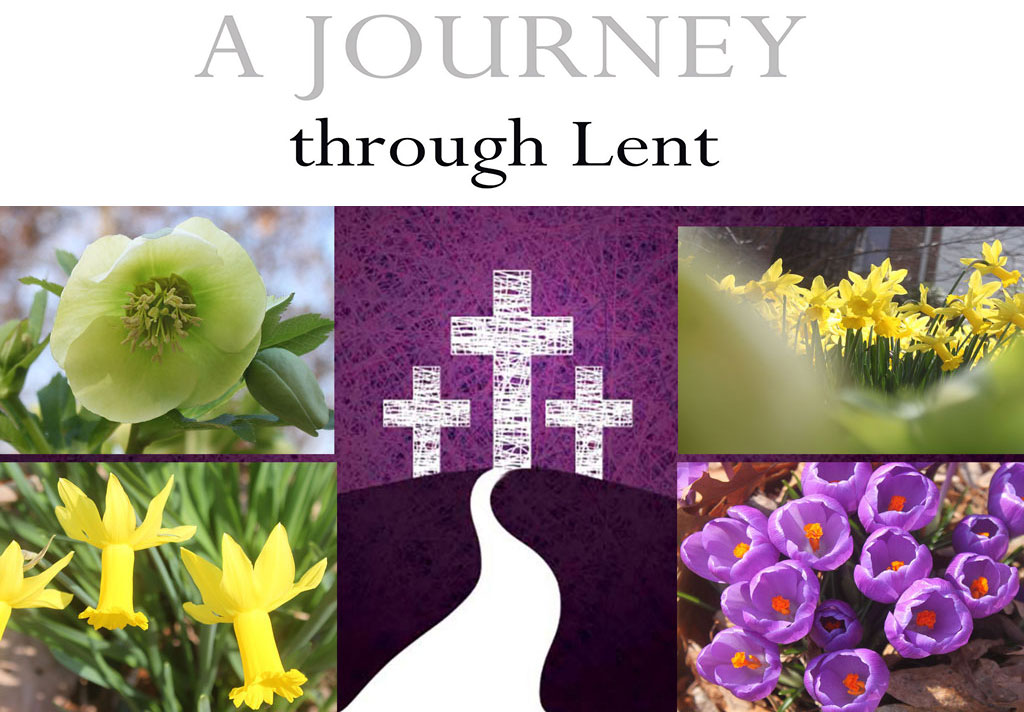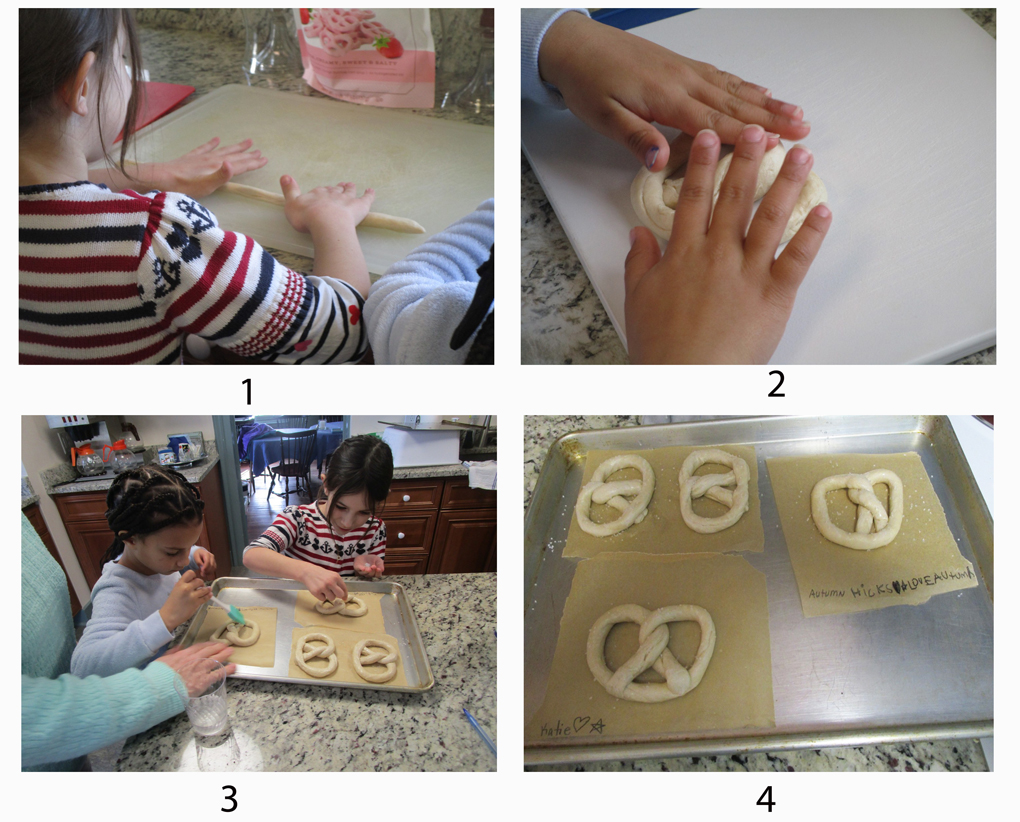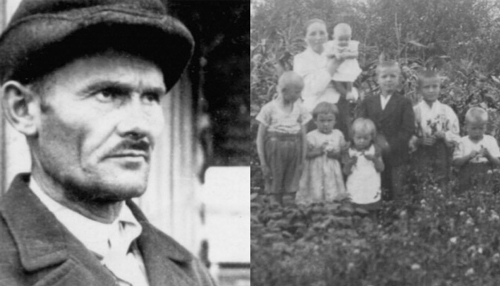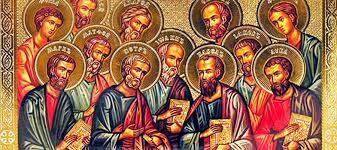
2024 Sun Feb 25
Lenten Study, The Creeds, A Guide to Deeper Faith

When we say the Creeds (the Apostles’ Creed at baptisms and at Morning Prayer and the Nicene Creed when we celebrate the Eucharist), we are stating our belief in what the church believes, in faith, about God—that God is one being in three persons—that is, three “persons” within the one Godhead.
It’s easy to say these words without much thought because they are so familiar. And yet, they are the words that create community among Christian believers around the world, past, present, and future, the Apostles’ Creed being the most widely used of all of Christianity’s confessions of faith. These words are so important that they are permanently attached to our altar wall, along with the Ten Commandments and the Lord’s Prayer. The creeds not only bind us together in communities of faith, but these words, if taken into our hearts, can lead us to a deeper faith.
During this season of Lent, we will study these creeds, learning about how they came to be, what they mean to the Church, and we will also reflect on how they may help us grow in faith as Christians.
The study is scheduled for five Wednesday nights of Lent—Weds Feb. 21st, 28th, and March 6th, 13th, and 20th at 7PM on Zoom ID: 833 7014 5820 Passcode: 528834
Sunday’s Thoughts Lent 2, Feb. 25

Perceptions can change in scripture and your mission can change too.
On Jan 18, the date of Peter’s confession Mark 8:27-30 Jesus went to the predominately pagan region of Caesarea Philippi to question and deepen his disciples’ understanding of his role and theirs. “Who do you say that I am?” Peter got it right- Jesus is the Messiah.
On Last Epiphany on the Transfiguration (Feb. 11) Mark 9:2-9, Peter now misread the situation wanted to build three tents, preserving the event much longer.
Now this Sunday on Lent 2 (Feb. 25) with an earlier sripture Mark 8:31-38 Peter who had correctly identified Christ as the Messiah now gets Christ’s mission wrong. Peter saw Jesus as his Messiah who was to save Israel from the Romans. Peter’s view of the Messiah was not one who went to the cross, rejected, and died. He was just told he was wrong but rebuked, set in his place.
This is a different response from when Jesus called the first disciples. Jesus calls the first disciples, saying simply, “Follow me, and I will make you fish for people”. In other words, there are people who want to hear Jesus’ message, and he invites them to follow and be part of spreading Good News that is eagerly received. They are part of the advertisment.
They have seen the results in healing the sick of all ills into many remote communities. He has fed the many and he has drawn huge crowds. And don’t forget his proclamation of a new Kingdom, not that of the Romans.
Now, Jesus is seemingly making an about face. Peter is questioning that saying – What is this Kingdom when the leader is tp be killed ?
Deny self, take up the cross and follow ? Now it seems to be a mission of confrontation that not everyone is up to. Peter is thinking “Did I sign up for this?”
Our confrontation is take Jesus message into the world where there is suffering is broad. We may not be setting up to be killed but there is death to many of our solitary desires to witness a larger pictures. As Debi Thomas writes “To take up a cross as Jesus did is to stand in the center of the world’s pain.”
“Taking up the cross means recognizing Christ crucified in every suffering soul and body that surrounds us, and pouring our energies and our lives into alleviating that pain — no matter what it costs.”
Our challenge for our ministries is to seek areas where is pain, trouble or other dislocation and see what we can do to ameliorate that. How can life be made better?
For instance, Sacred Ground will look at the food issue involving children. Food insecurity is higher among children than the population as a whole. While Caroline County provides free breakfast and lunches, there is the need for snacks for tutoring activities outside of the normal school day. What about meals at home on the weekends and during the summer ?
There other possible avenues involving mentoring and adopting a classroom that need to be discussed.
God’s Garden makes pretzels for Lent, Feb. 25

Pretzels for Lent date back to the early Church, perhaps sometime in the 4th century. During that time it was common for Christians to fast during the season, abstaining from meat, dairy, fats, and sweets. These quick breads are made with only a tiny bit of sugar to activate the yeast and no fat – they are entirely flour, water and yeast! The simplicity of water, salt, and flour suggested commitment and attention, not least also prayer.
As to the shape: pretzels are made in the shape of two arms crossed in prayer. In Latin, the pretzel is called “bracellae”, meaning little arms. The word “bracellae” became the German “bretzel” and “pretzel.”
Another story places the origin of the word in “pretiola” which means little reward, so pretzels might have been given as an award to a child who had learned her prayers!
The children had fun making pretzels and they even sent some home. The dough was bought so that the activity could fit in the time frame and still have time to work on the Lord’s Prayer.
Here’s a photo gallery showing the steps in making these Lenten treats
Videos, Feb. 25, 2024, Lent 2
01 Opening Hymn – The God of Abraham praise
02 Readings – Old Testament, Psalms
03 Readings – Epistle
Sermon, Lent 2, Feb. 25, 2024 – Suffering
Sermon, Second Sunday in Lent, Year B
Mark 8:31-38

Jozef and Wiktoria Ulma with their family in Poland
Although we don’t generally like to hear about or to think about suffering, Jesus reminds us in today’s gospel that following him as a disciple will include suffering.
As I’ve thought about suffering this week, it’s been useful to consider three broad categories of suffering.
The first category is physical suffering due to natural causes.
Bulletin, Second Sunday in Lent, Feb. 25, 2024
Click here to view in a new window.
“Letting Go” – Diocese of Atlanta, Week 2
From Bishop Wright – “Jesus was talking about his impending rejection, suffering, death and ultimate resurrection when Peter interrupted. He interrupted and criticized Jesus for what he was saying. Jesus was declaring the power of letting go of control precisely as Peter tries to control the moment, the message and the man. Peter found out in that exchange, that trying to control Jesus will get you labeled “Satan.” Whenever we’re talking about control, we should be investigating motivations for exerting control, especially our own. What may have been controlling Peter that day was fear. Fear is always seeking to motivate us. Always subtly vying for control of us. Stalking and shaping our worldview, our politics, our relationships, even our lives with God. (There is a direct correlation between how much we attempt to control others and our own lack of freedom.) What Jesus was proclaiming “openly,” before he was interrupted was his refusal to be obsessed with control over his reputation, his enemies, the nature of his death or the means by which God would redeem the situation.”
Village Harvest – Feb., 2024 – a positive month
We served 110 at the Feb. 21, 2024 Village Harvest. After a slowdown to 91 last month, we were back at the plateau of 110-112 from achieved fron Nov and Dec. last year. This was 10 people above the earlier period Aug to Oct. which served between 90 and 100.
Totals for the first two months show some consistency from 2021-2024. The total is between 200 and 205 except for 2023 which was substantially lower at 137. We are not sure what happened but weather was not an issue.
The Creeds Class, Part 1, Feb. 21, 2024

We had 8 people online for the first class, Feb 21, 2024.
Weekly Sessions
1. Why we have the creeds and the origin?
2. Creed about God – “I believe in God, the Father almighty”.
3. Creed about Jesus.
4. Creed about the Holy Spirit.
5. Creed about baptism, resurrection.
Creeds are ultimately for the unity of the Church containing the beliefs that are central to the faith. They hold us together. They are used to teach new members.
St. Matthias, Feb. 24
After the Ascension of Jesus, the Apostle Peter, in a “general assembly of the faithful” declared the need for a 12th apostle, since Judas was no longer one of the twelve. With all the questions, doubts, and dangers facing the apostles, they chose to focus their attention on finding a twelfth apostle. Twelve was a very important number to the Chosen People: twelve was the number of the twelve tribes of Israel. If the new Israel was to come from the disciples of Jesus, a twelfth apostle was needed.
One hundred and twenty people were gathered for prayer and reflection in the upper room, when Peter stood up to propose the way to make the choice.
Peter had one criterion that, like Andrew, James, John, and himself, the new apostle be someone who had been a disciple from the very beginning, from his baptism by John until the Ascension. The reason for this was simple, the new apostle must become a witness to Jesus’ resurrection. He must have followed Jesus before anyone knew him, stayed with him when he made enemies, and believed in him when he spoke of the cross and of eating his body — teachings that had made others melt away.
Two were considered as most worthy of the dignity–Joseph, called Barsabas, and, on account of his extraordinary piety, surnamed the Just, and Matthias. Matthias was chosen by lot. Clement of Alexandria says that Matthias, like all the other apostles, was not chosen by Jesus for what he already was, but for what Jesus foresaw he would become. He was elected not because he was worthy but because he would become worthy
Matthias was one of the disciples about which little was written. However, the Book of Acts records that he had been a consistent follower from Jesus’ baptism until the Ascension. We do know that he was present at the Pentecost.
